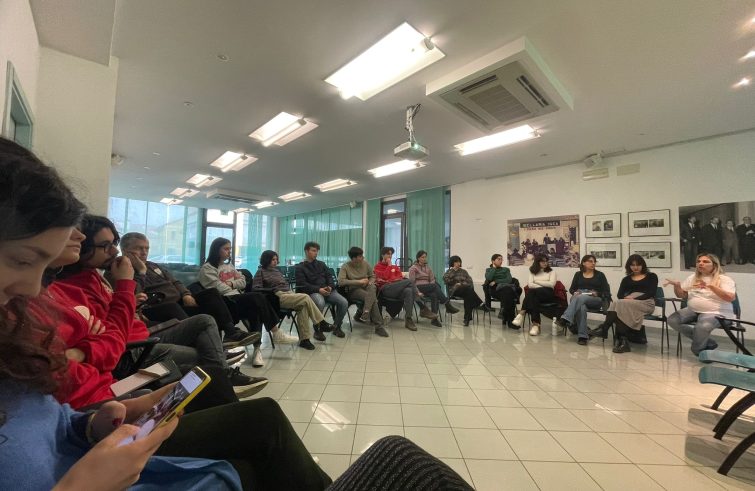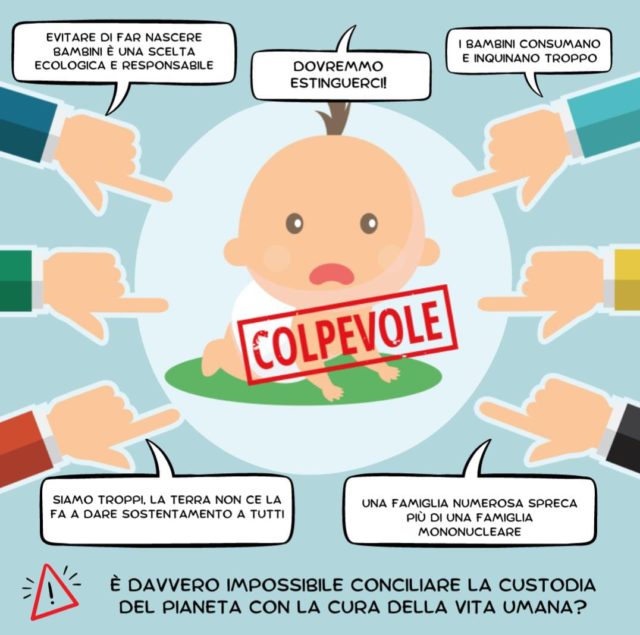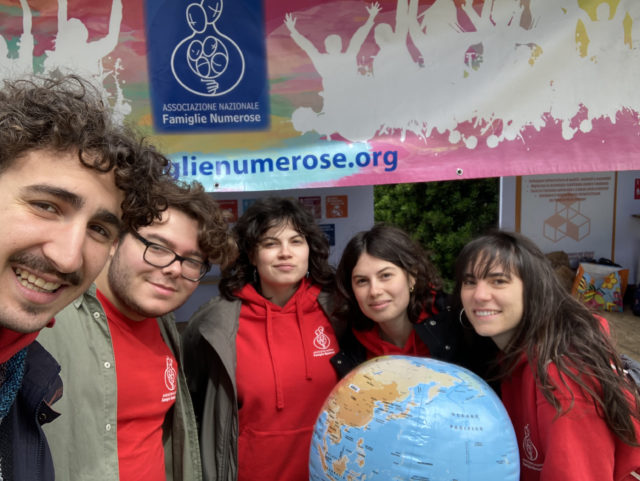
“Global warming, pollution, overpopulation… That’s what happens when you have many children! This phrase sums up the prejudices directed against large families in particular, based on long-standing misconceptions. A “Brief Manual for Families Who Want to Change the World” and a dedicated booklet have been produced to debunk this urban myth. The initiative was launched by the youth group of the National Large Families Association (ANFN) to promote family eco-sustainability. “In a world facing pressing environmental challenges, it is essential that every person and every household plays an active role in caring for our planet, our common home,” the document states. The first event in which the ANFN youth group took part was the Earth Village in Rome, on the occasion of the 54th World Earth Day celebrations, where they set up a dedicated information point. Here, the young members of the ANFN explained “how large families can contribute to environmental protection, debunking myths and misconceptions about them.” SIR discussed the contents of the new Manual and the stereotypes that need to be eradicated with Miriam Resta-Corrado, who covers environmental issues for the youth section of the ANFN and coordinated the initiative.
How did the ANFN’s interest in environmental issues and the Manual come about?
I have been involved in the National Large Families Association since 2011 with my family – four children plus one in foster care. Our home is in Supersano, a town near Lecce. Together with my siblings, I joined the association as a member of the children’s activities team, which is very useful when we organise meetings and gatherings where children always need to be looked after. However, a youth group has recently been set up to allow the young people of the association to get involved in other areas as well. One of the areas we have identified for our projects is environmental protection, on which I am currently working because I have a degree in Environmental Sciences and I am also a Laudato si’ animator and I collaborate with the Italian Bishops’ Conference Technical Board for Energy Communities. I am committed to involving the Association actively on this issue. In the course of my life I have come up against both environmental extremism and pro-life extremism. The former sees the global population as becoming too large: there are too many of us – is their theory – and so we must seek birth control and encourage abortion. Conversely, in response to this extremism, I have noticed in some pro-life circles a tendency to deny environmental issues, to the point of becoming climate denialists, for the sake of not having to pander to environmental concerns. I have come across these two worlds that seem to be at odds with each other, but
When it comes to the care of Creation, there is a middle ground where care for the planet and care for human life meet,
there is a path that connects the dots. The encyclical Laudato si’ has been an important source of inspiration and I have tried to incorporate this into the ANFN. For the first time last April we were present at the Earth Village, where we organised activities and put material on display. Included in this material is this brief Handbook with some basic suggestions for sustainable living in the family. Indeed, as Pope Francis reminds us, the family is the place where we learn to share and be grateful for what we have, and where we learn to manage resources responsibly, especially in large families where sacrifices often have to be made so that each person has the same amount as everyone else. Large families can be places where we learn to live sustainably.
 What are the most common misconceptions concerning large families that specifically involve environmental issues?
What are the most common misconceptions concerning large families that specifically involve environmental issues?
The common myth is that our planet cannot sustain the world’s growing population. In fact, many studies and reports show that the planet is deteriorating not because of the growing population, but because of the overconsumption of a small portion of the world’s people.
In an effort to debunk these false myths, we have compiled a booklet outlining the prejudices that exist against childbirth: we want to show that a newborn child is not to blame.
As Pope Francis has said, to put the blame on the unborn child is a way of avoiding facing up to the problems. The problem exists and we have to face it with those who have caused it, and those who have caused it are a small part of the world’s population who are responsible for the consumption of most of the planet’s resources.
What advice do you give in the Handbook?
We have highlighted a number of issues related to household management.
It’s a small ‘pentalogue’ of recommendations, suggestions, useful information at a general level that should be the starting point for any resource management conduct, namely: buy only what you need, grow your food, repair what can be repaired, share and lend, and buy second-hand.
In other words, core principles for every issue. We then looked more specifically at the issue of waste and separate waste collection. We also included suggestions for useful lifestyle management apps. For example, we suggested the waste management app ‘Junker’, which identifies a product by scanning its barcode and, based on the user’s geo-location, immediately shows the exact waste disposal site. In the same way, we provide drinking water recommendations. More than 8 billion plastic bottles are sold in Italy every year, but the quality of the water that flows from our taps is, for the most part, quality-controlled and safe all over Italy. This means that it is easy for us to have access to a safe, cheap and environmentally friendly alternative to bottled water. For example,
there are public fountains or free water refill stations in many cities across Italy. We recommend using the app, which allows users to locate fountains and filling stations where they can refill their bottles or flasks with fresh drinking water.
With regard to foodstuffs, we suggest choosing local grocery stores that sell organic products; opting for unpackaged or minimally packaged products; carefully planning the amount of food to be purchased based on the number of people eating and their individual needs in order to minimise waste; keeping meat consumption to a minimum, preferring meat from non-intensive organic farms; favouring plant-based products; growing your own food whenever possible – a homemade cake or biscuits for a school snack is much better than a purchased candy bar; raising awareness in the community; involving local grocery stores in the process of change. The handbook includes advice on energy saving, personal hygiene and care, and finally some sustainability brands. It’s a very concise vade mecum, to which we have added some useful book references for more detailed information.
The response from visitors at the Earth Village stand and from those who contacted us from all over Italy, inside and outside the Association, has been overwhelmingly positive. They appreciated the advice given, and also gave us suggestions on additional content. There is a need for a more in-depth study of these issues among families and for the dissemination of the possibilities and suggestions that can be useful for them, also in terms of money-saving attitudes. It was also suggested to publish more manuals with more in-depth information on the different topics, or to create a section for families on the ANFN website dealing with the different issues. It is planned that the youth group will work on other topics as well, but this is a work in progress.










